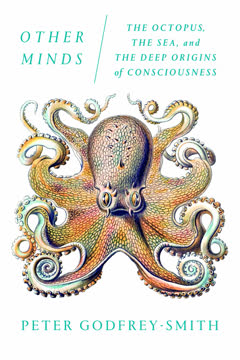Key Takeaways
1. Human instincts shape our behavior, rooted in our evolutionary past
"We are all designed to secure mates and produce children. As far as our genes are concerned, reproduction is the whole point."
Our ancestral legacy. Human behavior is profoundly influenced by instincts that evolved over millions of years on the African savannah. These instincts, shaped by natural selection, continue to affect our decision-making, social interactions, and emotional responses in modern life.
Instincts vs. modern world. While our instincts were adaptive for survival in prehistoric times, they can sometimes clash with the demands of contemporary society. For example:
- Fear responses to non-threatening stimuli
- Cravings for high-calorie foods in an age of abundance
- Aggressive tendencies in peaceful social environments
Understanding these instinctual drives can help us navigate the complexities of modern life and make more informed choices about our behavior.
2. Survival instincts: The fight-or-flight response and its modern implications
"Inside your body, all hell has broken loose. Biological sirens and alarms are wailing."
Physiological response. The fight-or-flight response is a powerful survival mechanism that prepares the body for immediate action in the face of perceived threats. This instinctive reaction involves:
- Rapid release of stress hormones (adrenaline, cortisol)
- Increased heart rate and blood pressure
- Redirection of blood flow to muscles
- Enhanced sensory perception
Modern context. While this response was crucial for our ancestors facing predators, it can be triggered by non-life-threatening stressors in modern life, such as:
- Public speaking
- Work deadlines
- Traffic jams
- Social conflicts
Recognizing the physiological signs of this response can help us manage stress more effectively and avoid overreacting to minor threats in our daily lives.
3. The growing brain: Evolution of human intelligence and cognitive abilities
"We began to talk to one another, which allowed communal living to become more complex and more successful."
Brain expansion. The human brain underwent remarkable growth and development over millions of years, tripling in size from our early ancestors to modern humans. This expansion was driven by:
- Environmental pressures
- Social complexity
- Tool use and technological innovation
- Language development
Cognitive advantages. The enlarged brain provided humans with unique cognitive abilities that set us apart from other species:
- Abstract thinking and problem-solving
- Complex language and communication
- Long-term planning and foresight
- Cultural transmission of knowledge
These cognitive advancements allowed humans to adapt to diverse environments, form complex societies, and ultimately dominate the planet.
4. Sexual selection and mate preferences: Genetic drivers of attraction
"Men are programmed for sexual variety, to spread their genes; if there's a chance of impregnating another female – especially one who is already married and would therefore not have to be cared and provided for – then he may well have stumbled across the best evolutionary knock-down cut-price bargain of all time."
Evolutionary strategies. Sexual selection has shaped distinct mating preferences in men and women, reflecting different reproductive strategies:
Men's preferences:
- Youth and fertility cues (e.g., waist-to-hip ratio)
- Physical attractiveness
- Signs of health and genetic quality
Women's preferences:
- Resources and status
- Commitment and reliability
- Intelligence and social skills
Modern implications. These evolved preferences continue to influence attraction and relationship dynamics in contemporary society, although cultural factors and individual variation also play significant roles.
5. Family dynamics: Kin selection and the evolutionary basis of family bonds
"Because our children, siblings and cousins carry a proportion of our genes, it is in our interest to help them survive, prosper and reproduce."
Genetic investment. Kin selection theory explains why we are more likely to help and cooperate with close relatives. The closer the genetic relationship, the more likely we are to engage in altruistic behavior:
- Parents and children (50% shared genes)
- Siblings (50% shared genes)
- Grandparents and grandchildren (25% shared genes)
- Cousins (12.5% shared genes)
Family structures. This genetic predisposition has shaped human family structures and social organizations throughout history, influencing:
- Parental investment in offspring
- Sibling relationships and rivalry
- Extended family networks and support systems
- Inheritance patterns and resource allocation
Understanding kin selection can provide insights into family dynamics, social behavior, and even cultural practices surrounding kinship and inheritance.
6. Risk-taking behavior: Evolutionary advantages and modern consequences
"Human beings delight in their excess, find more and more ingenious ways of putting themselves in jeopardy and adopt as many expensive handicaps as they can afford."
Adaptive risk-taking. Risk-taking behavior likely evolved as an adaptive strategy, providing potential benefits such as:
- Access to resources and mates
- Status and social prestige
- Exploration of new territories
- Innovation and problem-solving
The handicap principle. Risky behaviors may serve as honest signals of genetic quality, demonstrating an individual's ability to survive despite self-imposed handicaps.
Modern context. In contemporary society, risk-taking tendencies can manifest in various ways:
- Extreme sports and thrill-seeking activities
- Financial speculation and gambling
- Substance abuse and addiction
- Reckless driving and other dangerous behaviors
While some risk-taking can lead to innovation and progress, excessive risk-taking can have severe personal and societal consequences. Understanding the evolutionary roots of this behavior can help develop strategies to channel risk-taking impulses more productively.
7. Violence and aggression: Instinctual roots and societal impact
"We can be almost sure that the genes carried by one particular male lion haven't evolved by allowing another lion's genes to flourish at their expense."
Evolutionary context. Aggressive behavior likely evolved as a strategy for:
- Resource competition
- Mate acquisition and retention
- Territorial defense
- Establishing social hierarchies
Genetic and hormonal factors. Propensity for violence can be influenced by:
- Genetic predispositions
- Hormonal levels (e.g., testosterone)
- Neurological differences (e.g., prefrontal cortex function)
Societal implications. While violence served adaptive purposes in our evolutionary past, it poses significant challenges in modern society:
- Criminal behavior and law enforcement
- Domestic violence and child abuse
- International conflicts and warfare
- Social inequality and oppression
Understanding the instinctual roots of aggression can inform strategies for violence prevention, conflict resolution, and promoting more peaceful social interactions.
8. Cooperation and altruism: The evolution of prosocial behavior
"We are born to live our lives in collaboration with others, and we are born with the ability to realize when others are failing to play their allotted role."
Evolutionary advantages. Cooperation and altruism likely evolved due to their benefits for group survival and individual fitness:
- Resource sharing and risk pooling
- Collective defense against predators and rivals
- Knowledge transmission and cultural learning
- Enhanced problem-solving through collaboration
Mechanisms of cooperation. Several factors contribute to the evolution and maintenance of cooperative behavior:
- Kin selection (helping relatives)
- Reciprocal altruism (mutual benefit over time)
- Group selection (benefits to the entire group)
- Reputation and indirect reciprocity
Modern implications. Cooperative tendencies underpin many aspects of human society:
- Economic systems and division of labor
- Social institutions and governance
- Cultural practices and traditions
- Scientific and technological advancement
Understanding the evolutionary basis of cooperation can inform strategies for promoting prosocial behavior and addressing collective action problems in modern society.
9. Morality and spirituality: Beyond instinct to higher-level human traits
"We are bound to our empirical existence, and our moral sense is therefore grounded firmly in the human world."
Evolutionary foundations. While morality and spirituality may seem uniquely human, they likely have evolutionary roots:
- Empathy and theory of mind
- Sense of fairness and reciprocity
- In-group cooperation and out-group competition
- Pattern recognition and causal reasoning
Cultural elaboration. Human cultures have built upon these instinctual foundations to create diverse moral and spiritual systems:
- Ethical frameworks and philosophies
- Religious beliefs and practices
- Legal systems and social norms
- Rituals and symbolic behaviors
Modern implications. Understanding the evolutionary and cultural basis of morality and spirituality can:
- Promote cross-cultural understanding and tolerance
- Inform ethical decision-making in complex situations
- Provide insights into the nature of human consciousness and meaning-making
- Guide efforts to cultivate prosocial behavior and social cohesion
While our moral and spiritual capacities may have instinctual roots, they represent a uniquely human ability to transcend immediate biological imperatives and contemplate abstract concepts of right, wrong, and the nature of existence.
Human Instinct: How Our Primeval Impulses Shape Our Modern Lives by Robert Winston is licensed under a Creative Commons Attribution-NonCommercial-ShareAlike 4.0 International License.
Based on a work at https://www.amazon.com/Human-Instinct-Primeval-Impulses-Modern/dp/0553814923.
To view a copy of this license, visit http://creativecommons.org/licenses/by-nc-sa/4.0/.
Last updated:
FAQ
What's Human Instinct about?
- Exploration of Human Behavior: Human Instinct by Robert Winston examines how primal instincts, shaped by evolution, influence modern human behavior, focusing on survival, reproduction, aggression, and cooperation.
- Connection to Evolution: The book discusses the psychological implications of human evolution, emphasizing that our minds are still rooted in our Stone Age past, connecting instincts to ancestral challenges.
- Interplay of Science and Religion: Winston explores the relationship between science and religion, questioning how instincts shape beliefs and moral frameworks in contemporary society.
Why should I read Human Instinct?
- Understanding Instincts: The book provides insights into the instincts driving human behavior, offering a scientific perspective on why we think and act the way we do.
- Relevance to Modern Life: It explores how ancient instincts clash with modern societal norms, helping readers understand responses to stress, competition, and relationships.
- Engaging Narrative: Winston's accessible writing style makes complex scientific concepts understandable, using anecdotes and examples to illustrate key points effectively.
What are the key takeaways of Human Instinct?
- Instincts Shape Behavior: Many behaviors, from aggression to altruism, are driven by deep-seated instincts inherited from ancestors, leading to greater self-awareness.
- Survival and Reproduction: The importance of survival and reproductive instincts in shaping human relationships and social structures is highlighted, influencing mate selection and parenting styles.
- Cultural Influences: While instincts play a significant role, culture and environment also impact human behavior, shaping how instincts are expressed in different societies.
What are the best quotes from Human Instinct and what do they mean?
- "We are all trapped inside what is essentially a Stone Age mind.": This quote suggests that modern behaviors are influenced by ancient instincts that may not serve us well today.
- "Instinct is essentially that part of our behavior which is not learned.": It highlights the distinction between instinctual and learned behavior, emphasizing innate drives shaping actions.
- "The pressures to which we have been exposed over millennia have left a mental and emotional legacy.": This reflects on how evolutionary pressures have shaped our psychological makeup, influencing emotions and reactions.
How does Human Instinct explain the origins of survival?
- Fight or Flight Response: Winston discusses the biological mechanisms behind the fight or flight response, crucial for survival in threatening situations, rooted in our evolutionary past.
- Adaptation to Environment: Early humans adapted to savannah dangers, developing instincts that helped them survive against predators, reflected in current behaviors and stress reactions.
- Role of Instincts: Instincts related to survival, such as fear and aggression, are hardwired into our brains, influencing responses to perceived threats even today.
What insights does Human Instinct provide about sexual behavior?
- Sexual Drive and Reproduction: Sexual instincts are fundamental to human behavior, driving individuals to seek mates and reproduce, with evolutionary advantages discussed.
- Differences Between Genders: Differences in sexual behavior and preferences between men and women are highlighted, rooted in evolutionary pressures, with men seeking multiple partners and women being more selective.
- Impact of Culture: While instincts play a significant role, cultural norms and societal expectations also influence how these instincts are expressed.
How does Human Instinct address the concept of morality?
- Morality Beyond Instinct: Winston questions whether morality is purely instinctual or shaped by cultural and social factors, exploring the relationship between instincts and moral beliefs.
- Evolution of Morality: Moral behaviors may have evolved as adaptive strategies for social living, promoting cooperation and altruism within groups, linked to survival as a species.
- Complexity of Human Nature: Human morality is complex and cannot be fully explained by instincts alone, with biology, culture, and individual choice shaping moral frameworks.
What role does cooperation and altruism play in Human Instinct?
- Survival of the Group: Cooperation and altruism are essential for the survival of social groups, enhancing individual survival chances within the group.
- Evolutionary Advantage: Altruistic behaviors may have evolved for evolutionary advantages, such as increased support and protection from group members, linked to kin selection.
- Human Relationships: Instincts for altruism foster social bonds and community cohesion, highlighting the importance of cooperation in human relationships.
What is kin selection as discussed in Human Instinct?
- Definition of Kin Selection: Kin selection explains how behaviors helping relatives enhance the survival of shared genes, with individuals more likely to act altruistically towards genetic ties.
- Examples in Nature: Examples from the animal kingdom, like worker bees sacrificing for the hive, illustrate kin selection in various species.
- Implications for Human Behavior: Kin selection helps explain why humans prioritize family well-being over strangers, as evolutionary history favored such behaviors for gene survival.
How does Human Instinct explain the concept of altruism?
- Altruism Defined: Altruism refers to selfless behavior benefiting others, often at a personal cost, understood through evolution and natural selection.
- Types of Altruism: Different forms include kin altruism (helping relatives) and reciprocal altruism (helping others with future help expectations), evolved as survival strategies.
- Real-World Examples: Case studies, like individuals risking lives during the Holocaust, illustrate the profound capacity for altruism in humans.
What role does aggression play in human instincts according to Human Instinct?
- Aggression as an Evolutionary Trait: Aggression has been a crucial survival mechanism throughout evolution, helping individuals compete for resources, mates, and territory.
- Cultural and Social Influences: While rooted in biology, cultural norms and social structures modulate aggressive behaviors, leading to varying violence levels across societies.
- Case Studies of Aggression: Examples from human history and animal behavior illustrate aggression manifestations and circumstances under which it is expressed.
How does Human Instinct relate to modern societal issues?
- Conflict Between Instincts and Society: The tension between ancient instincts and modern life demands, like living in large cities, can lead to stress and dissatisfaction.
- Understanding Human Behavior: Insights into contemporary issues like competition, aggression, and relationship dynamics are provided by examining underlying instincts.
- Cultural Adaptation: While instincts are rooted in evolution, culture and societal norms shape how these instincts are expressed, informing social behavior and policy discussions.
Review Summary
Human Instinct receives mostly positive reviews for its accessible exploration of evolutionary psychology and human behavior. Readers appreciate Winston's engaging writing style and insights into human nature. However, some criticize the final chapter for its religious content, feeling it contradicts the scientific approach. The book is praised for its broad coverage of topics and ability to explain complex concepts clearly. While some find it outdated or lacking in-depth scientific rigor, many recommend it as an informative introduction to evolutionary psychology and human behavior.
Similar Books
Download PDF
Download EPUB
.epub digital book format is ideal for reading ebooks on phones, tablets, and e-readers.












